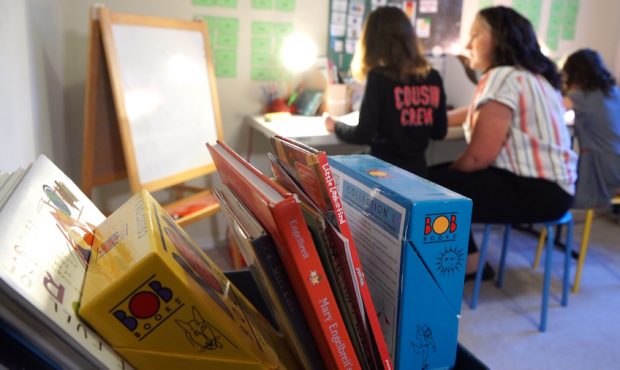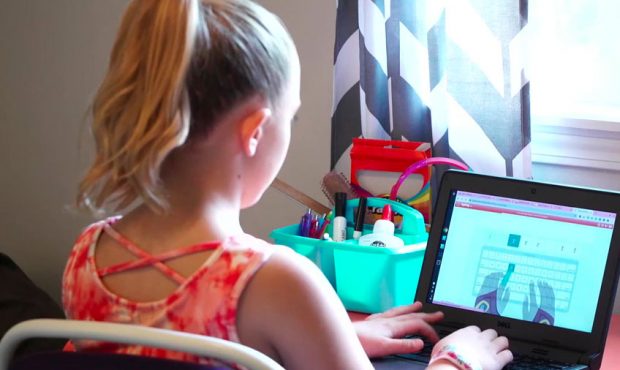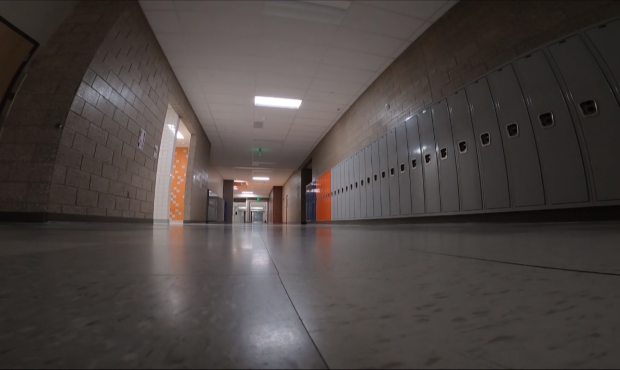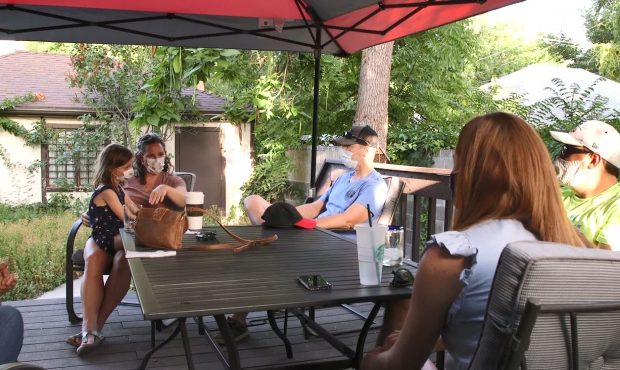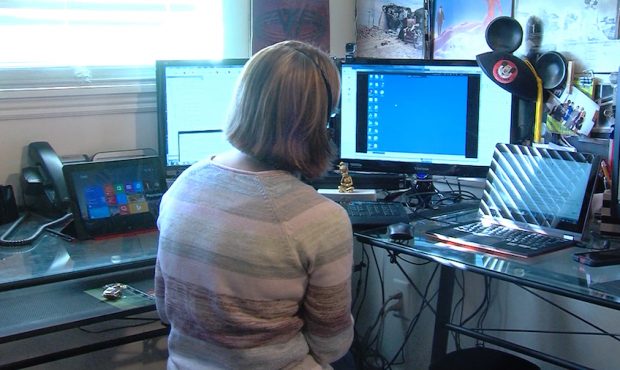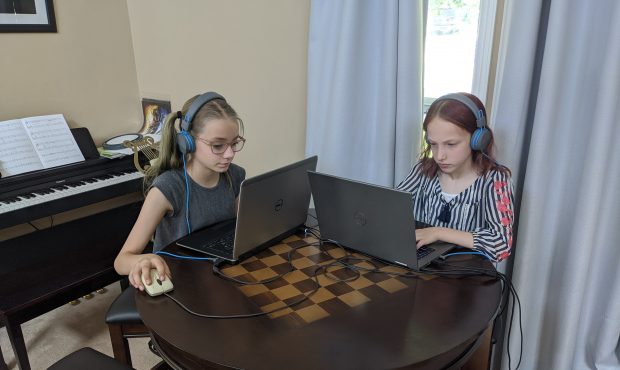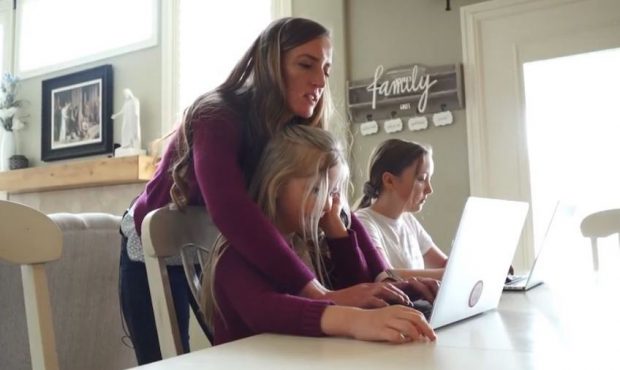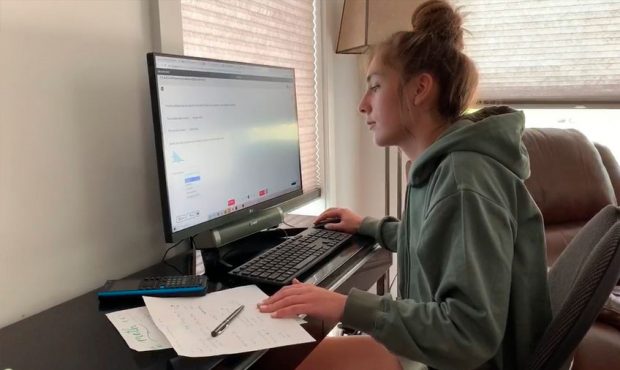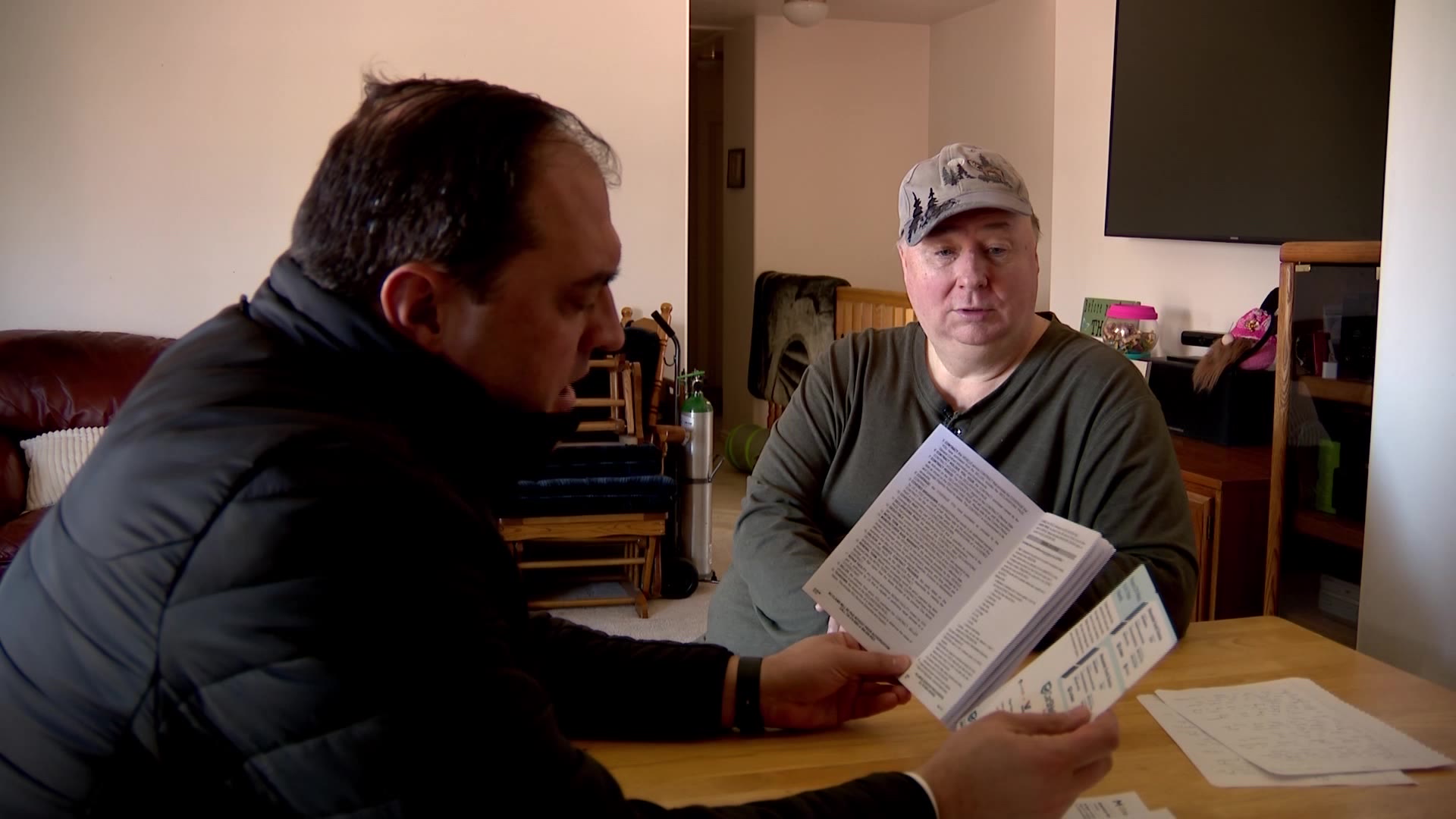KSL Investigates: Child predator tips jumped 50% in Utah during COVID-19
Nov 16, 2020, 10:12 PM | Updated: Feb 7, 2023, 3:09 pm
SALT LAKE CITY — A KSL Investigation revealed a sharp increase in online child sex crimes in Utah during 2020. Those who investigate these crimes believe the elevated number of child predators with virtual access to kids is due, in part, to COVID-19.
Representatives with the state’s Internet Crimes Against Children, or ICAC, task force – which is part of the Utah Attorney General’s Office – said the pandemic had kids spending more time on their smart devices while predators were also working from home, free from the in-person oversight and management from their supervisors.
From March through June 2020, ICAC received 749 cyber-tip cases. During the same time in 2019, ICAC only received 490 cases. That is an increase of more than 52%.
A Survivor’s Story
Kiara Holm knows too well what is at stake.
In June 2017, when she was just 17 years old, Holm was living with her father in St. George. She was struggling.
“I was always the depressed kid. Oh, I hid it very, very well. I was always anxious, always looking for my next boyfriend, just someone to talk to,” Holm explained.
She wanted to get out of the house for a few days to get out of her head.
“So, I posted on the Whisper app, saying that I needed to leave,” she said. “And, this guy messaged me. He had told me that his name was Carter. He told me that he was 20 years old and that he lived just a half-hour away from where I was staying.”
The two talked online for a few days before “Carter” came to pick her up. During that time, Holm, a minor, said she shared explicit photos with him.
“I was a teenager – I loved the attention. I loved people telling me I was beautiful,” she admitted.
“Initially, when we were talking, I had told him that I was 18. But then within a few days, I told him that I was 17 and he replied, ‘Oh, even better.’ Those were his exact words,” she continued.
She said that in that moment, she didn’t realize the man was preying on her online.
“Carter” was actually Raymond Larry Burk, 37, from Phoenix, Arizona. Unfortunately, Holm would not learn that until after Burk kidnapped her.

Raymond Burk, 37, of Phoenix, Arizona. (Arizona Department of Corrections, 08/21/2018)
“I was going to be his and I couldn’t leave,” she said, crying. “I was going to be his ‘pet,’ is what he called me.”
According to police, Burk repeatedly abused Holm until he was arrested about two weeks later.
Holm, now 21, said she doesn’t want anyone to go through the trauma that she endured.
“He was looking for a girl to find – to take for his own or something,” Holm said. “It kind of sucks that it had to be me. But I’m glad that it had to be me because I was able to put him away. I don’t know how many kids he’s done this to, but I was able to put him away.”
Burk is currently serving a 12½ year sentence in an Arizona prison. He is considered a “medium custody” inmate, which means he and inmates like him are not permitted to work outside “the secure perimeter of an institution and require limited controlled movement within the institution.”
What is ICAC?
Preventing tragedies like what happened to Holm is ICAC’s goal.
According to the task force’s website, ICAC is “a multi-jurisdictional task force that investigates and prosecutes individuals who use the Internet to exploit children.” Further, the program “encompasses forensic and investigative components, training and technical assistance, victim services, and community education.”
ICAC investigates three crimes:
- Sexual Exploitation of a Minor (possessing, distributing and manufacturing child pornography),
- Enticing a Minor over the Internet (with the intent of committing sexual acts to the child), and
- Dealing in Material Harmful to a Minor (sending pornography to a minor and/or sexting).
Utah’s ICAC task force is made up of more than 100 law enforcement officers from 37 local, state and federal police agencies that work together to solve cases.
Special Agent Alan Conner is a field commander.
“Kids are being harmed,” Conner said. “Kids are being extorted for pictures of them in compromising situations and then they’re being extorted for more. They’re being threatened that those pictures will be released to their friends, their family, the general world, and some of these kids are pushed to suicide even.”
With such a large increase in cases, Conner says the program is constantly feeling behind.
“We’ve just not caught our breath,” he said. “We definitely need more help at this point, and to me, it’s not something that we’re going to be able to solve entirely as law enforcement.”
Because Internet crimes can cross state lines, ICAC works cyber-tips it receives from The National Center for Missing and Exploited Children (NCMEC).
“The number of cases that were referred to us from the first of March through the end of June are 50% more than what we saw last year at the same time. I can’t say I’ve ever seen an increase this substantial,” Conner added. “I’ve been doing this for ten years and we’ve never slowed down. We’ve steadily increased the number of people working these type of cases and there’s more than we can take care of.”
Oftentimes, undercover agents pose as kids online to catch predators in the act and keep them away from children. In the first nine months of 2020, the task force made 177 arrests.
UTAH ICAC ARRESTS
- 2015 — 222
- 2016 — 259
- 2017 — 246
- 2018 — 218
- 2019 — 226
- 2020 (Jan. 1 – Sept. 30) — 177 so far
The Utah Attorney General employs five full-time investigators. The affiliate officers are mostly part-time. They work with a public budget of $770,000, funded by the state, a grant from the Office of Juvenile Justice and Delinquency Prevention and donations.
While the Utah task force has been in operation since 2000, ICAC is a national organization. There are 61 different ICAC task forces throughout the United States.
In Fiscal Year 2019, ICAC task force programs nationwide conducted more than 81,000 investigations which resulted in the arrests of more than 9,500 people.
COVID-19 & Child Cybercrimes
While Utah’s ICAC task force has seen a steady increase in cases over the past two years, investigators believe COVID-19 may be behind the jump in tips in 2020.
“People are spending more time at home, definitely, and online – whether that’s for education, employment, or illegal activities,” ICAC Section Chief Alan White said.
The problem, he said, is all over Utah and it’s only getting worse.
“The last few years as storage is cheaper, internet speeds are faster, the videos are becoming more graphic, and the victims are younger and younger,” White continued.
Child Predators In Your Neighborhood: A KSL Ride Along
The KSL Investigators got insider access over a month as ICAC agents executed multiple search warrants across the Wasatch Front.
Although not every warrant ended in an arrest, KSL cameras were there in Saratoga Springs when 26-year-old Michael Rex Sandberg was taken into custody on suspicion of 20 counts of sexual exploitation of a minor.

Michael Rex Sandberg, 26, of Saratoga Springs. (Utah County Jail)
According to court documents, investigators found thousands of pornographic images of children on his computer – some as young as 2 years old.
Sandberg is behind bars in the Utah County Jail.
“I hate to say it, but they’re out there and they come from every walk of life,” Conner explained. “I have rocket scientists, firefighters, police officers, teachers, homeless people – it doesn’t matter. And age doesn’t matter – anywhere from 15 to 75.”
Online dangers are something Conner said parents should always be thinking about.
“The online danger is going to be there whether or not the kids are in school,” Conner said. “Kids are our future and we need to take the time and put in the effort to protect them.”
ICAC officials said parents need to double down their efforts to be aware of what their kids are doing – in-person and online.
Kiara Holm Now
Holm, now 21, still uses social media, but she has cleaned house online. She is now the mother of a 2-year-old daughter and wants to protect her.
“I’ve just taken so many precautions just to keep myself safe and my little family safe,” Holm said. “I’m very, very careful with who I let in my life now.”

Kiara Holm is now 21 and the mother of a 2-year-old. (KSL-TV)
Despite everything Burk took from her, she says he gave her one thing: strength.
“I’ve learned to use my voice. Ever since then, I’ve learned to stand up for myself.”
In the years after her kidnapping, Holm has decided she wants to be a special education teacher for blind students.
“I just have a passion for helping people – especially those who can’t stand up for themselves,” she said.
Resources For Parents
In addition to investors and prosecutors, the Utah AG’s office employs a full-time education specialist and sponsors the Digital Respons-Ability program to educate children, parents and community members about internet safety. They offer free resources to parents.
Have you experienced something you think just isn’t right? The KSL Investigators want to help. Submit your tip at investigates@ksl.com or 385-707-6153 so we can get working for you.






